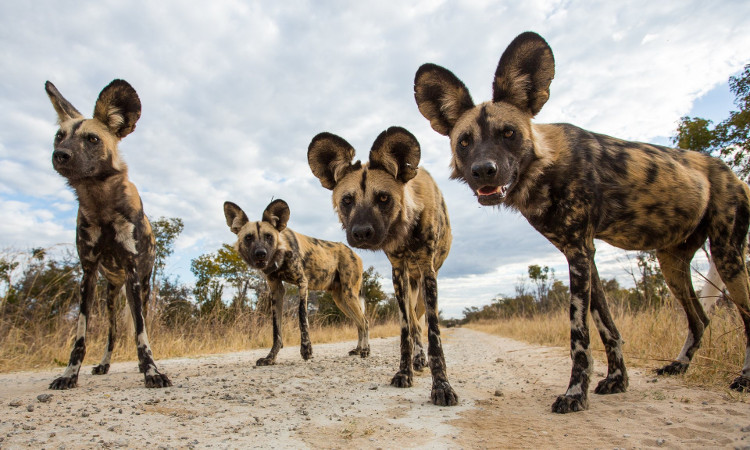African wild dogs face extinction because of heat
The African wild dog is facing the risk of extinction before global warming, becoming the first tropical animal to be affected by this phenomenon, Times magazine reported on July 20.
New research by the London Zoological Society (UK) conducted earlier this year shows that global warming directly affects wild dogs in Africa.
Accordingly, the number of populations of this wild animal is affected by the high mortality rate of puppies in the past years, up to 3-5 times depending on the region.
In Kenya, which is most affected by global warming, the average temperature has risen to 1 degree Celsius, pushing the puppy's mortality rate to 31%. This figure in Zimbabwe is up to 14%.
By 1989, the average mortality rate of this breed of dogs in Africa was only 5.1%. The global warming climate has reduced the time of hunting in a day, leading to a decrease in the amount of bait taken for the puppies, and consequently the mortality rate accordingly increased.

The number of African wild dogs is declining sharply - (Photo: Guardian).
In addition, according to the above study, the hot weather also directly affects the puppies.
Worldwide, the number of African wild dogs is only about 6,600, of which 1,400 are grown up.
Not only wild dogs, many other African species are indirectly affected by the phenomenon of global warming, resulting in a shortage of fresh water.
For example, African elephants have also been included in the list of conservation animals.
Elephants are among the terrestrial species that need the most water, so the lack of fresh water alarmingly reduces the number of populations in the continent.
Scientists warn that by the end of the century the number of African elephants will be reduced by 30% due to global warming in particular and climate change in general.
Scientists warn that when a species in the wild extinct, it could lead to environmental crisis, or the extinction of other species.
Losing a species will disrupt the balance of the ecosystem, especially in the food chain, leading to extinction, or a sharp decline in the number of many other species.
Although the situation is getting more serious, it is not too late for people to act and change their actions to save the environment.
- Every time African wild dogs want to vote for hunting, will they sneeze?
- Fascinating wild dogs with lovely looks, personality like wolves
- Stealing food, hyenas are hunted by a pack of wild dogs
- Africa has a picturesque dog and hunting is even better than a lion
- Hyenas and crocodiles in turn unleashed a sudden killing of wild dogs
- Rabies in India: The fierce battle does not end
- The origin and characteristics of African lion dogs
- Wild dogs do not know 'heaven is thick and thick', attacked, lion bastard fins
- DNA testing for wild dogs suddenly discovered the rare animals on the planet
- African rhinoceros is about to become extinct
- 15 years later African elephants may no longer exist
- Dogs know face recognition
 Animal 'suffering' after hibernation
Animal 'suffering' after hibernation Why do goats climb well?
Why do goats climb well? Scientists were surprised to see chimpanzees eating turtles
Scientists were surprised to see chimpanzees eating turtles Giant catfish died deadly due to drought in Thailand
Giant catfish died deadly due to drought in Thailand